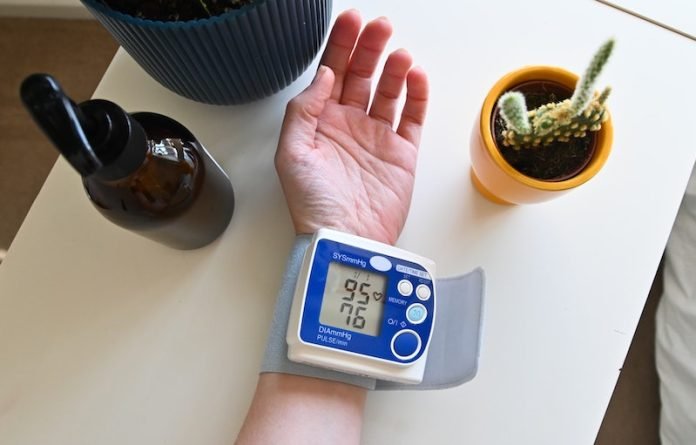
High blood pressure, or hypertension, is a common condition that affects nearly half of all adults in the United States.
According to statistics from the American Heart Association, having high blood pressure can increase the risk of developing heart attack, stroke, kidney disease, and other health problems.
High blood pressure is typically defined as having a systolic blood pressure (the top number) of 130 or higher or a diastolic blood pressure (the bottom number) of 80 or higher, according to guidelines from the AHA and American College of Cardiology.
In a recent study conducted by scientists at Rutgers University, researchers found that younger men and older women were more likely to have uncontrolled high blood pressure despite taking medications.
The study used health information from the National Health and Nutrition Examination Survey from 1999 to 2018 and included over 13,000 people who were being treated with medications for high blood pressure.
Overall, 34% of those in the study had uncontrolled high blood pressure.
When researchers compared men and women across 10-year age groups, they found that men were more likely to have an uncontrolled high blood pressure than women in their 20s and 30s, with the difference peaking in their 30s.
By their 40s, men were still 47% more likely than women to have uncontrolled hypertension. However, in their 50s and 60s, men and women had similar odds of having uncontrolled high blood pressure.
For people aged 70 and older, women were 29% more likely to have uncontrolled high blood pressure, and in their 80s and beyond, they were 63% more likely than men to have the problem.
The team suggests that there is a need to increase awareness about uncontrolled hypertension among older women and younger men, and further studies need to be done to understand the reasons behind this phenomenon.
In conclusion, high blood pressure is a common condition that can increase the risk of developing serious health problems.
A recent study from Rutgers University highlights the need to increase awareness about uncontrolled hypertension among older women and younger men.
There are several risk factors for developing high blood pressure or hypertension. Some of the most common risk factors include:
Age: The risk of developing high blood pressure increases as we age.
Family history: If you have a family history of high blood pressure, you may be more likely to develop the condition yourself.
Race or ethnicity: Certain racial and ethnic groups, such as African Americans and Hispanic Americans, are at a higher risk of developing high blood pressure.
Gender: Men are more likely than women to develop high blood pressure, although the risk increases for women after menopause.
Lifestyle factors: Certain lifestyle factors can increase the risk of developing high blood pressure, including a diet high in sodium, lack of physical activity, being overweight or obese, and smoking.
Chronic conditions: Certain chronic conditions, such as diabetes, kidney disease, and sleep apnea, can increase the risk of developing high blood pressure.
Stress: Chronic stress can also contribute to high blood pressure.
It is important to note that many people with high blood pressure may not have any symptoms, which is why regular blood pressure screenings are important, especially if you have any of the above risk factors.
If you are concerned about high blood pressure, it is important to consult with your healthcare provider and to take steps to manage your health, including a healthy diet, regular exercise, stress management, and appropriate medication management.
If you care about high blood pressure, please read studies that early time-restricted eating could help improve blood pressure, and natural coconut sugar could help reduce blood pressure and artery stiffness.
For more information about blood pressure, please see recent studies about added sugar in your diet linked to higher blood pressure, and results showing a new way to treat high blood pressure.
Copyright © 2023 Knowridge Science Report. All rights reserved.



